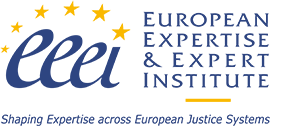As a reminder, EGLE is short for European Guide to Legal Expertise, and is a project that comes as a natural follow-up to the EEEI’s successful EUREXPERTISE project of 2011-2012. Like EUREXPERTISE, it has been co-funded by the European Commission’s DG Justice.
EGLE was launched on 1st March 2014, and its Organizing Committee, chaired by Mr. Alain Nuée, met on 9 April in Paris to implement the method of the Consensus Conference and prepare the next steps before the Kick-off meeting of 9 July 2014 in Brussels. The Kick-off meeting will bring together for the first time the EGLE Organizing Committee, and the members of the Working Groups and Data Study Group. We are expecting about 40 judges, lawyers, academics, and experts from over 14 countries.
http://ec.europa.eu/justice/newsroom/files/summaries_selected_2013_ag_jciv_en.pdf
The aim of the EGLE project is to reach a European consensus on the best practices in civil judicial expertise and to draft a European Guide to good practice. The method that was chosen to achieve this is the consensus conference, a tested method which follows strict rules to ensure that the final, plenary debates spark constructive results. The preparatory work for this conference is carried out by a Data Study Group and 4 Working Groups, led by the Organizing Committee.
So far, EGLE has contributors from Belgium, Bulgaria, Romania, the Czech Republic, France, Germany, Italy, Luxembourg, the Netherlands, the United Kingdom, and Spain. Members from the 28 countries of the European Union have expressed an interest in the EEEI’s work, and we are still welcoming new participants to this project. If you are interested in contributing to this project, don’t hesitate to let us know at m.elalaoui@experts-institute.eu or contact@experts-institute.eu or to forward this information to people who may be interested.
The Data Study Group is entrusted with the task of collecting all available work on the subject of civil judicial expertise. It will put together a Databank, including the Final Report of the EUREXPERTISE project, to be given to the Working Groups during the Kick-off meeting of 9 July 2014. It will also be responsible for collecting the documents written by the various members during and between each of the Working Group sessions and of sharing all additional content gathered during the preparatory work for the Plenary Conference of 6 May 2015 in Rome. Lastly, it will be responsible for drawing up the Final Report of the Conference for the Organizing Committee.
The 4 Working Groups of 8 to 10 people each are based on the 4 topics that were debated in EUREXPERTISE and correspond to the following themes :
- Appointing an expert : mission and expectations
- Expert proceedings and the expert’s report,
- Qualifications, Competence, and the evaluation of experts,
- The status and ethics of experts : free exercise and liability.
The Working Groups will meet every two months from the Kick-off meeting of 9 July 2014 in Brussels, to review and discuss practices, confront experiences, and draw up recommendations for best practices in civil judicial expertise. Each Working Group will appoint a rapporteur to present the results of its work at the Plenary Conference on 6 May 2015 in Rome.
The Plenary Conference of 6 May in Rome is a public conference that will be attended by 250 judges, lawyers, experts, and academics from all across the European Union.
The debates organized during this conference will help provide insight to a Jury of renowned figures who will rank the good practices. These results will constitute the base of the European Guide to Legal Expertise, which will be published in French and English and submitted to the European Commission along with draft Directives in the form of a White Paper.
Everyone is invited to participate in the Plenary Conference on 6 May 2015 in Rome, save the date !












